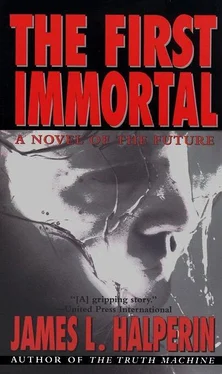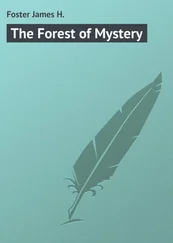“Maybe if I’d gone—”
“Hush,” Alice said, dismissing the notion. “I’ll never forget sneaking into our icehouse to look at her the day before the funeral. She looked so…”
“So alive. I remember.”
“Yes, alive,” Alice said. “It was as though a lightning bolt could’ve struck her, and she’d’ve…”
“Woke right up and started dancing?”
“Exactly.”
Ben’s eyes opened wide. He knew more time than usual would pass before sleep enfolded him tonight.
This conversation comprised the last words between his mother and his beloved Aunt Charlotte that Ben would ever hear. The next day, Charlotte felt too weak to come over, and soon Alice would begin spending evenings with her sister at their parents’ home. Less than a month later, Charlotte Franklin’s malady would be diagnosed as incurable, and six weeks after that she’d be dead from leukemia.
December 4, 1941
Ben Smith looked at the schoolroom clock, saw it was only 1:47 P.M., and smiled. Well, Mom, guess I nailed another one, he thought, as if she were in the room with him.
Although he’d skipped a grade, all his exams had so far been a cinch. It was not so much that knowledge adhered to him, though by and large it did; the fact was that work itself came naturally. When dealing with any task, he stepped wholly into the job. He became the goal. Be it physical labor or a complex algorithm, Ben saw, did, absorbed, and moved on.
So far as he knew, he’d never been taught this methodology. (His mother knew differently.) It was… well, just an obvious choice; the most efficient path to success. He understood that this approach was rare among his friends. It was as if any sight or sound or flight of fancy could distract them, and for them to return to the immediate task required considerable will, or the guiding hand of another. He understood, yes, but only as an observer. He had no idea how it felt to have such a response.
Ben expected to go to whatever college he chose. From there he would attend medical school and become a doctor specializing in whichever field offered him the greatest potential for achievement. He would make his parents proud.
He scanned the room. His time could just as well have been spent reading the paperback copy of We the Living stuffed into his hip pocket. But he knew everyone in the room, and Sam and Alice Smith had taught him a self-aware respect for others.
The bell rang, sparing Ben a sixth reread just as he’d become certain that no power in the universe could prevent him from drumming his fingers. He stretched his lean, six-foot frame and took a last look around the room. As his blue-green eyes passed over the faces, he could tell which students did well and which had choked. He sympathized with the latter, sometimes wondering what would happen to them in the real world.
Over the previous three years, America had stumbled toward a tenuous recovery from the Great Depression. Most of his classmates worried that the day’s relative prosperity was temporary. The general expectation was that Fortress Britain would eventually fall to the Nazis, and their Canadian neighbors would be forced to seek annexation by the U.S., probably costing America’s economy more than it could afford.
But Ben harbored no such fears or consequent xenophobia. He regarded himself as a neo-immigrant, not with embarrassment, but with a self-assured dignity. His own family’s circumstances, though still modest, had steadily risen over the years, and he trusted that, given time, life would continue to improve. He dreaded no new addition to the “melting pot,” begrudged no rival for the American dream. There was plenty for anyone willing to work for it. Another of Alice’s lessons which Ben had been unaware of being taught.
He left the classroom and hurried through the halls. Overhead hung newly installed fluorescent lights, a recent innovation, radiating a pale, stingy luminescence. Several of the tubes announced their impending expiration by casting an annoying flicker. Ben absorbed the ambience as metaphor: the new already fading into anachronism.
As he walked toward the street, he lost himself in reflection about his future; an exciting world, where science would progress at an exponential rate. In fact it was his optimism that drew him to the field of medicine. He believed medical researchers would eventually discover cures for smallpox, polio, cancer, heart disease, diabetes, possibly aging itself. People would live longer and healthier lives, and in the distant future might not die at all.
How distant? Ben pondered. Maybe in time for his grandchildren, or even his own generation.
He walked the few blocks separating Wakefield High School from downtown. A tall ladder leaned against Alfred’s Men’s Store; every pedestrian circled around it, but Ben decided to take his chances. Sometimes delights were found in the smallest defiances.
Several people stared, wondering if the boy had maybe lost his mind. What would he do next? Follow a black cat?
He arrived at the Colonial Spa ice cream parlor, the usual gathering place for his friends.
He smiled as he made his way through the after-school crowd to join his girlfriend, Margaret Callahan, and their mutual best friend, Tobias Fiske. It was odd—“peculiar,” was the word most of his friends would employ—in 1941 for a girl to count a male not as her “boyfriend,” but as her best friend. Yet Ben found he enjoyed the raised eyebrows Marge and Toby’s buddy-relationship occasioned.
As Ben joined them, Marge raised her head, smiling in acknowledgment and welcome. To her, this well-proportioned, fair-haired boy’s body personified the spirit it housed. She admired and trusted his ability and dedication, trademarks of her own father’s character. This emotional context carried an old-shoe familiarity, and she nestled comfortably within it. But there was more; a newer, more compelling feeling, which deliciously seasoned her response to Ben.
“Hey,” he said, taking a seat and joining the now-completed foursome. Marge covered his hand with her own.
Toby’s latest girlfriend, number four of the school year by Ben and Marge’s count, was a pretty blond classmate named Sally Nowicki. She seemed bright and lively and was clearly sweet on Toby, but Ben knew the courtship had a less than even chance of ringing in the new year. The two were engrossed in a random flow of airy conversation and light, playful petting; a replay of the previous week, except the girl’s name had been Lydia Gabrielson. And Denise Vroman a few weeks before that.
Toby Fiske, compact, dark-complexioned, and nimble of mind and body, was a brilliant young man, but as Marge had once observed, “Toby’s about as disciplined as a ten-week-old puppy.” Because Toby’s parents considered him overly susceptible to the influence of others, they were pleased that their son had fallen under Ben Smith’s tutelage; it was one of the few things upon which Theodore and Constance Fiske actually agreed.
Ben knew how it felt to be the recipient of subtle feminine overtures; it was always pleasant and flattering, but to him, after the day he met Marge in the spring of 1940, utterly resistible. She was his only and first serious girlfriend.
Marge was a natural beauty; straight brown hair, brown eyes, delicate features, and flawless skin; five feet seven inches tall, with long, perfectly shaped legs and a lean yet curvaceous figure.
Ben lifted her hand and kissed it.
“How’d your exam go?” she asked.
“I was ready for it,” he told her. “How was yours?”
“Okay, I think, but I doubt it’ll be enough to get into Radcliffe.”
“You’ll get in,” he said, squeezing her hand. “Or Wellesley at least.” Marge was probably just being modest, he thought.
Читать дальше












